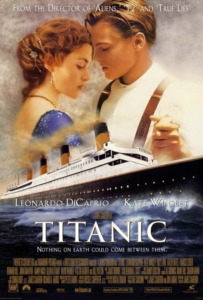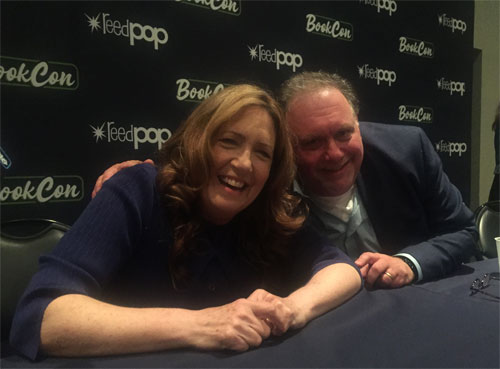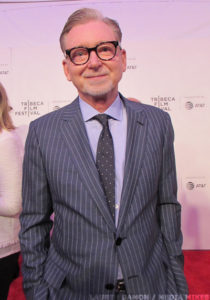“The Handmaid’s Tale”, Hulu’s stunning adaptation of Margaret Atwood’s 1985 novel held its premiere screening at this year’s Tribeca Film Festival as part of their Tribeca TV series. The series follows Elisabeth Moss’s “Offred,” one of many handmaids forced to serve a man in a dystopic American society where a wave of infertility has caused women to be stripped of their rights and utilized strictly for reproduction. The series debuted its first three episodes on Hulu on April 26th, with new episodes available every Wednesday. I spoke with the executive producer and showrunner of this brutal and hopefully not too prescient series.
What kind of freedom did you find adapting this novel into a streaming series rather than a regular tv show or film?
Executive Producer, Warren Littlefield: Well look, it’s not network television. Margaret Atwood’s vision, that she created in her book 32 years ago, was a dark dystopian world. And Bruce Miller adapted that and it’s a powerful, dark and very disturbing world and our partners at Hulu did not limit us in what we were able to do. In language, in action and physicality, in sexuality, in brutality. We were able to deliver the message that we wanted to deliver. I think it’s a thriller, I think it’s entertaining but it’s pretty damn powerful, so fasten your seatbelt.
Showrunner and writer, Bruce Miller: I haven’t worked in film very much at all. Almost all my work has been in tv which is much more fun because you could have stories that go on forever. But working in a streaming service, you get the great benefit of not having to have a show that’s forty-two minutes and twenty-two seconds long, but it can be longer or shorter. Which, more than you know, throws the audience off. They don’t know what’s gonna happen when you don’t know how much is left! It could end five minutes from now or fifteen minutes from now and that makes all the difference.
Were you very familiar with the novel before you worked on it?
Miller: There’s a novel?! [Laughs] Yeah I read the book when I was in college, in a ‘New Fiction’ class–which shows you how long ago I was in college. I loved it and I read it a whole bunch of times, completely on my own just as–I was interested in it. So I wasn’t thinking about it in terms of turning it into a television show. And then when I started to get more into writing tv and my career took off, I probably looked at it more in that way. But when I heard they were making a tv show, I was excited because I would get to watch it! Not because I was going to be making it. And then over the years, the show didn’t come out and there were reasons and this and that and you know, I ended up, despite my gender, getting the job. And it was wonderful after having been so familiar with the book but also having been familiar with it in a lot of different time periods. Because it kind of was perennially relevant. Every time I read it seemed like ‘wow this is just the time!’ to read it.
Especially this election year, where it seemed like assailing women’s rights was just a common trend…
Miller: It’s a hobby!
At which point when you were filming, did you realize what a hot topic you were handling?
Miller: I wrote the first few episodes before the election season started and then we were writing all the way through the debates and the election. And then we were shooting you know, in the middle…when Trump was elected president, we were shooting then. It was interesting, we were in Canada, so we had a little bit of a different perspective…But that was all very interesting. I don’t know–I’m sure subconsciously or unconsciously it changes the way you shoot things. But we were just trying to be gutsy. You know when you’re working from a book that showed so much bravery to write in the first place, you don’t want to be the wimp that turns it into a safe tv show. You want to be as bold as Margaret Atwood was. And so it just reinforced that idea that we should continue to be bold because its an important story we’re telling. But really, in a lot of ways like I said, I’m a writer, I’m in the question business, not the answer business. I’m just trying to put interesting questions out there, that doesn’t really change. I mean I certainly saw the relevance and certainly we went from saying ‘oh my gosh’ to ‘we better not screw this up!’ But I don’t know that anybody changed their story tact. I think we just became a lot more comfortable with what we had decided to do.
Littlefield: I think like the character of Offred, who is a fighter, that was our intention. We always felt a lot of pressure to live up to Margaret’s vision because it’s such a strong vision. And I think when we woke up in November in the middle of production, we were like ‘we better not screw this up!’ like…oh my god. But I think we were kind of fueled by [saying] ‘Alright, this is what we need to do.’ And I think the audience will be as well.
Streaming shows often come with binge-viewing, how do you feel about that approach?
Littlefield: Well, I kind of love what we’re doing. Hulu is presenting on the 26th of April, the first three hours, so you engage in a big way. And then each week, they’ll roll out an additional one. And so, I think that that also is really good because you want time. You may want to watch it again and it’s best I think in smaller doses, because it’s complex. I mean the world of television allows you to do complex characters and a complex narrative and we embrace it.
Can you discuss casting Elisabeth Moss in the main role?
Miller: Elisabeth Moss is astonishing in this. I’ve been a fan of hers forever. She has just such a range of skills and I can’t imagine anybody else in this role. She was who I wanted to be in this role from the beginning. She has main circuit cable connecting her heart to her face that doesn’t have an off switch. So whatever she feels bubbles up. But it’s a really interesting role to play because she’s got all this stuff showing on her face that she doesn’t want anybody else in the room to see, but she wants you to see. The best thing about Liz is she likes to be challenged so I got to write stuff that I never would have written for anybody else because everything I wrote that was harder and harder and harder, she loved it! So we got to really push the boundaries of the skills of an actor.
Series star Elisabeth Moss was understandably pressed for time on the carpet, but offered this comment on acting out the defiance displayed by her character Offred:
Elisabeth Moss
“It was important to me, I mean that’s her whole story you know? That she’s so beaten down and torn apart, and has everything taken from her and just will not give up. And she’s so stubborn. And I think it goes up and down throughout the season, to me that defiance that I think we would all find in ourselves if we had to.”
The Handmaid’s Tale continues to add new episodes to Hulu every Wednesday and was already renewed for a second season in 2018.
Related Content



